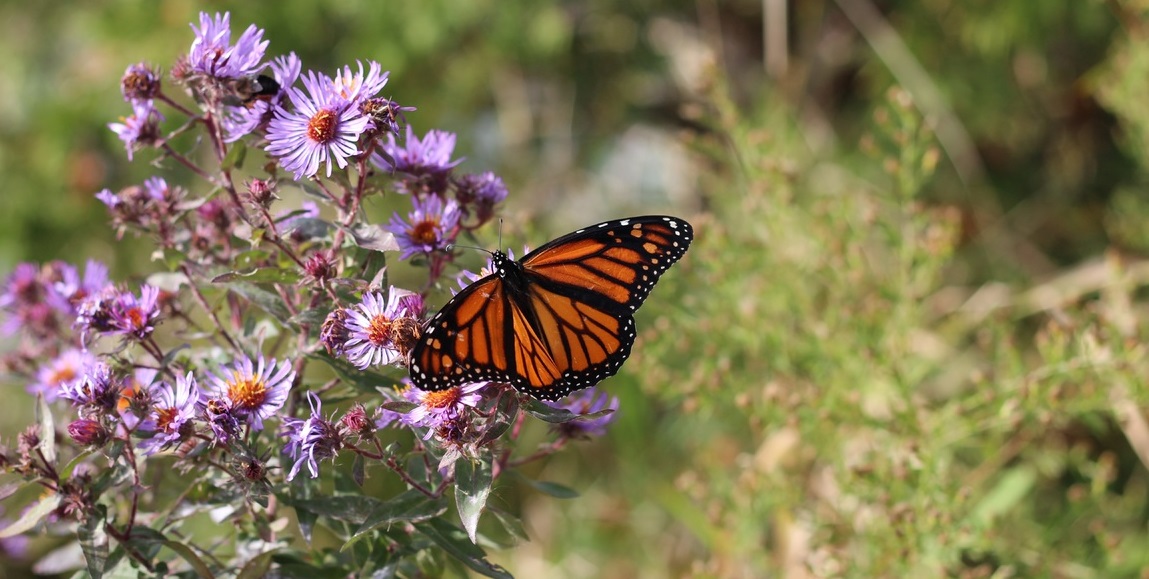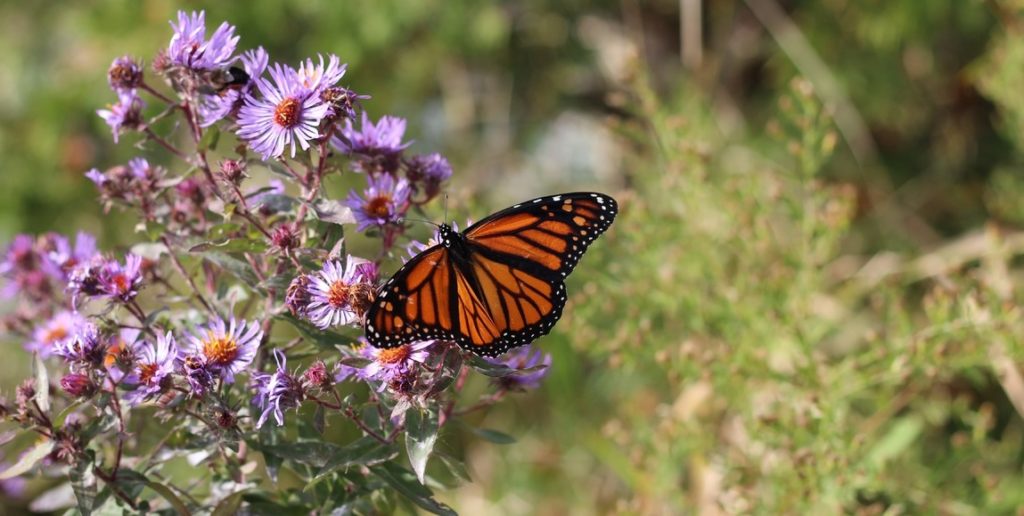Church Seeks to Build Butterfly Highway

Let the heavens rejoice, let the earth be glad; let the sea resound, and all that is in it. Let the fields be jubilant, and everything in them; let all the trees of the forest sing for joy. —Psalms 96: 11-12
When one tugs at a single thing in nature, he finds it attached to the rest of the world. —John Muir
First Congregational Church Sonoma, in partnership with the Valley of the Moon Garden Club and CA State Parks Vallejo Home, has developed a Monarch Butterfly Habitat Garden. As you may know, the monarch butterflies and other butterflies like the swallowtails are suffering from habitat loss and the effects of pesticide use. Our congregation’s goal is to plant milkweed and build a Butterfly Highway along the properties of churches and interested conservationists in Sonoma Valley. Project leaders have spent many hours building the milkweed garden, planting wildflowers and perennials, harvesting butterfly eggs, and demonstrating how to protect and nurture Monarchs from the caterpillar to the chrysalis to the emergent butterfly stage. The garden is already a source for learning and delight as children of all ages are taught about the unique lifestyle and migration of Monarchs and how to protect them. The best kind of service is that which is offered for the joy of giving, and the members of our church extend their gratitude to the Butterfly Brigade workers for their hard work and inspiration.
Elizabeth Griego is the moderator of First Congregational Church Sonoma.

Related News
Growing Weary
In December 1964 during a speech in Harlem, Fannie Lou Hamer declared: “And you can always...
Read MoreOur Moral Center
“We've got about 350,000 people who are dying prematurely from the burning of fossil fuels...
Read MoreChapter Resources
Check out the latest resources for our local Climate Hope Affiliates: December Monthly...
Read More

